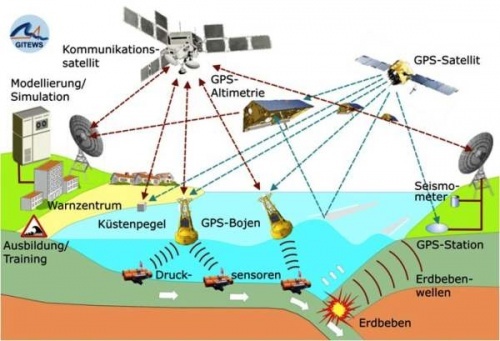
UN Economic and Social Council (ECOSOC) voted to establish a committee of experts on global geospatial information management to coordinate international dialogue on spatial data infrastructures and enhance cooperation in that field. According to the latest report of the Secretary-General on global geospatial information management, the rapid technological advances in geospatial information and related technologies have made this kind of information readily available. (From UN News Centre).
Geospatial information has application in many fields including humanitarian, peace and security, environmental and development challenges facing the world, such as climate change, natural disasters, pandemics, famines, population displacement and food and economic crises, according to the report.
What is Geospatial Information?
Geospatial analysis is an approach to applying statistical analysis and other informational techniques to geographically based data. Such analysis employs spatial software and analytical methods with terrestrial or geographic datasets, including geographic information systems and geomatics. Geospatial analysis, using GIS, was developed for problems in the environmental and life sciences, in particular ecology, geology and epidemiology. It has extended to almost all industries including defense, intelligence, utilities, Natural Resources (i.e. Oil and Gas, Forestry etc), social sciences, medicine and Public Safety (i.e. emergency management and criminology). Spatial statistics typically result primarily from observation rather experimentation. (From Wikipedia)
Building the infrastructure for the gathering, validation, compilation and dissemination of geospatial information is therefore as important for countries as the building of roads and telecommunications networks. However, there is currently no global multilateral or intergovernmental mechanism that can play the important leadership role of setting the agenda for the development of global geospatial information and promote its use to address key global challenges.
UN Take Lead Role:
The Secretary-General proposed that the UN take the lead role and serve as the coordinating entity of the global geospatial information community, hence the decision to create the committee. The committee is mandated, among other tasks, with providing a platform for the development of effective strategies on how to build and strengthen national capacity on geospatial information, especially in developing countries. It will also compile and disseminate best practices and experiences of national, regional and international bodies on geospatial information related to legal instruments, management models and technical standards, thus contributing to the establishment of spatial data infrastructures.
The committee will comprise experts from all Member States, as well as from and international organizations, who will serve as observers.
By Ambassador Muhamed Sacirbey
Facebook – Become a Fan at “Diplomatically Incorrect”
Twitter – Follow us at DiplomaticallyX

